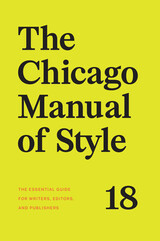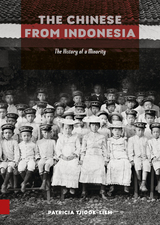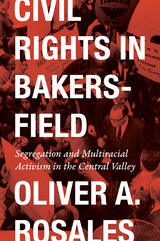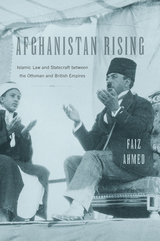
Debunking conventional narratives of Afghanistan as a perennial war zone or marginal frontier, Faiz Ahmed presents a vibrant account of the first Muslim-majority country to gain independence from the British Empire, form a fully sovereign government, and promulgate an original constitution after the fall of the Ottoman Empire.
Far from a landlocked wilderness, turn-of-the-twentieth-century Afghanistan was a magnet for itinerant scholars and emissaries shuttling between Ottoman and British imperial domains. Tracing Afghans’ longstanding but seldom examined scholastic ties to Istanbul, Damascus, and Baghdad, as well as greater Delhi and Lahore, Ahmed vividly describes how the Kabul court recruited jurists to craft a modern state within the interpretive traditions of Islamic law and ethics, or shariʿa, and international legal norms. Beginning with the first Ottoman mission to Kabul in 1877, and culminating with parallel independence struggles in Afghanistan, India, and Turkey after World War I, this rich narrative explores encounters between diverse streams of Muslim thought and politics—from Young Turk lawyers to Pashtun clerics; Ottoman Arab officers to British Raj bureaucrats; and the last caliphs to a remarkable dynasty of Afghan kings and queens.
By unearthing a lost history behind Afghanistan’s independence and first constitution, Ahmed shows how debates today on Islam, governance, and the rule of law have deep roots in a beleaguered land. Based on research in six countries and as many languages, Afghanistan Rising rediscovers a time when Kabul stood proudly for anticolonial coalitions, self-determination, and contested visions of reform in the Global South and Islamicate world.

The Muwaṭṭaʾ, written in the eighth century CE by Mālik b. Anas—known as the Imam of Medina—is the first written treatise of Islamic law. The Prophet Muḥammad and his earliest followers immigrated to the city of Medina after they experienced severe persecution in their hometown of Mecca, establishing the first Muslim community in Medina. As the Muslim community rapidly expanded, Medina lost some of its political importance, but retained its position as the leading Muslim center of learning for over one hundred years after the Prophet Muḥammad’s death. Imam Mālik’s Muwaṭṭaʾ provides an unparalleled window into the life of this early Muslim community, and the rituals, laws, and customs they upheld.
This translation is based on the recently published critical edition of the Muwaṭṭaʾ, The Royal Moroccan Edition (2013). With its extensive notes, this edition is intended to make this important early legal text widely accessible to a broad spectrum of readers, including those interested in both legal history and Islamic Studies.
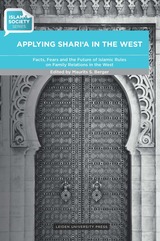
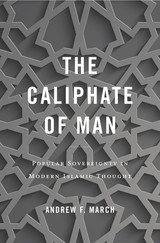
A political theorist teases out the century-old ideological transformation at the heart of contemporary discourse in Muslim nations undergoing political change.
The Arab Spring precipitated a crisis in political Islam. In Egypt Islamists have been crushed. In Turkey they have descended into authoritarianism. In Tunisia they govern but without the label of “political Islam.” Andrew March explores how, before this crisis, Islamists developed a unique theory of popular sovereignty, one that promised to determine the future of democracy in the Middle East.
This began with the claim of divine sovereignty, the demand to restore the sharīʿa in modern societies. But prominent theorists of political Islam also advanced another principle, the Quranic notion that God’s authority on earth rests not with sultans or with scholars’ interpretation of written law but with the entirety of the Muslim people, the umma. Drawing on this argument, utopian theorists such as Abū’l-Aʿlā Mawdūdī and Sayyid Quṭb released into the intellectual bloodstream the doctrine of the caliphate of man: while God is sovereign, He has appointed the multitude of believers as His vicegerent. The Caliphate of Man argues that the doctrine of the universal human caliphate underpins a specific democratic theory, a kind of Islamic republic of virtue in which the people have authority over the government and religious leaders. But is this an ideal regime destined to survive only as theory?
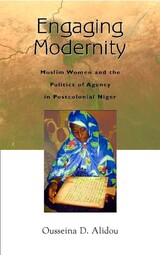
Engaging Modernity is Ousseina Alidou’s rich and compelling portrait of Muslim women in Niger as they confront the challenges and opportunities of the twentieth century. Contrary to Western stereotypes of passive subordination, these women are taking control of their own lives and resisting domination from indigenous traditions, westernization, and Islam alike.
Based on thorough scholarly research and extensive fieldwork—including a wealth of interviews—Alidou’s work offers insights into the meaning of modernity for Muslim women in Niger. Mixing biography with sociological data, social theory and linguistic analysis, this is a multilayered vision of political Islam, education, popular culture, and war and its aftermath. A gripping look at one of the Muslim world’s most powerful untold stories.
Runner-up for the Aidoo-Snyder Book Prize, Women’s Caucus of the African Studies Association
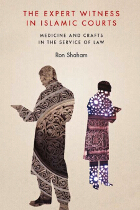
Shaham begins with a history of expert testimony in medieval Islamic culture, analyzing the different roles played by male experts, especially physicians and architects, and females, particularly midwives. From there, he focuses on the case of Egypt, tracing the country’s reform of its traditional legal system along European lines beginning in the late nineteenth century. Returning to a broader perspective, Shaham draws on a variety of legal and historical sources to place the phenomenon of expert testimony in cultural context. A truly comprehensive resource, The Expert Witness in Islamic Courts will be sought out by a broad spectrum of scholars working in history, religion, gender studies, and law.

Drawing on archival documents, oral history and traditions, travelers’ accounts, the Arabic text Pakao al-Qurano (Holy Book of Pakao), and original ethnography, The Institutionalization of Islam in Southern Senegal demonstrates how these communities reframe the debates about the institutionalization of Islam in Senegambia geographically, chronologically, and thematically.
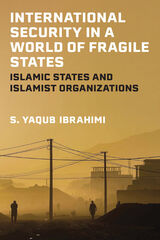
Following the 9/11 attacks on New York and Washington, DC, there has been an increasing interest among scholars, students, and the interested public to study and learn about the Islamist-oriented terrorist organizations called Jihadi Salafi Groups (JSGs). Considering that these organizations emerged in highly fragile states, S. Yaqub Ibrahimi asks: how and why is state fragility linked to the emergence of JSGs?
Ibrahimi bases his study on three events: the establishment of al-Qaeda in Afghanistan in 1998, the rise of Islamic State in the post-Saddam Hussein Iraq, and the failed al-Qaeda effort to establish a base in Saudi Arabia in 2003. These case studies contain major aspects and features of the rise of JSGs and, together, explain the contribution of state fragility to the process of the formation and expansion of these terrorist organizations.
International Security in a World of Fragile States stands out as a pivotal work on the interconnection between the root causes of JSGs and state fragility conditions and their amalgamated role in the formation and evolution of these organizations. It contributes to IR and international security debates by developing a comprehensive but readily understandable narrative of the rise of JSGs in Islamic countries, and examining them in an analytical framework in which their root causes are categorized on individual, group, and international levels.
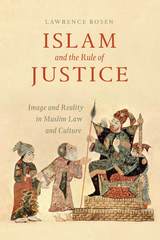
With Islam and the Rule of Justice, Lawrence Rosen analyzes a number of these misperceptions. Drawing on specific cases, he explores the application of Islamic law to the treatment of women (who win most of their cases), the relations between Muslims and Jews (which frequently involve close personal and financial ties), and the structure of widespread corruption (which played a key role in prompting the Arab Spring). From these case studie the role of informal mechanisms in the resolution of local disputes. The author also provides a close reading of the trial of Zacarias Moussaoui, who was charged in an American court with helping to carry out the 9/11 attacks, using insights into how Islamic justice works to explain the defendant’s actions during the trial. The book closes with an examination of how Islamic cultural concepts may come to bear on the constitutional structure and legal reforms many Muslim countries have been undertaking.
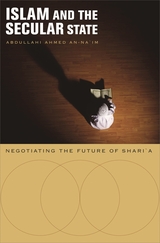
What should be the place of Shari‘a—Islamic religious law—in predominantly Muslim societies of the world? In this ambitious and topical book, a Muslim scholar and human rights activist envisions a positive and sustainable role for Shari‘a, based on a profound rethinking of the relationship between religion and the secular state in all societies.
An-Na‘im argues that the coercive enforcement of Shari‘a by the state betrays the Qur’an’s insistence on voluntary acceptance of Islam. Just as the state should be secure from the misuse of religious authority, Shari‘a should be freed from the control of the state. State policies or legislation must be based on civic reasons accessible to citizens of all religions. Showing that throughout the history of Islam, Islam and the state have normally been separate, An-Na‘im maintains that ideas of human rights and citizenship are more consistent with Islamic principles than with claims of a supposedly Islamic state to enforce Shari‘a. In fact, he suggests, the very idea of an “Islamic state” is based on European ideas of state and law, and not Shari‘a or the Islamic tradition.
Bold, pragmatic, and deeply rooted in Islamic history and theology, Islam and the Secular State offers a workable future for the place of Shari‘a in Muslim societies.

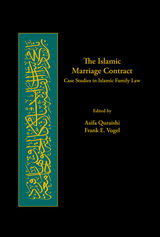

It is often said that marriage in Islamic law is a civil contract, not a sacrament. If this is so, this means that the marriage contract is largely governed by the same rules as other contracts, such as sale or hire. But at the same time marriage is a profound concern of the Islamic scriptures of Qur’an and Sunna, and thus at the very core of the law and morality of Islam and of the individual, familial, and social life of Muslims. This volume collects papers from many disciplines examining the Muslim marriage contract. Articles cover doctrines as to marriage contracts (e.g., may a wife stipulate monogamy?); historical instances (e.g., legal advice from thirteenth-century Spain); comparisons with Jewish and canon law; contemporary legal and social practice; and projects of activists for women worldwide.
Demonstrating a new and powerful focus for comparative and historical inquiries into Islamic law and social practices, this book marks a fresh point of departure for the study of Muslim women.

This book presents an in-depth exploration of the administration of justice during Islam’s founding period, 632–1250 CE. Inspired by the scholarship of Roy Parviz Mottahedeh and composed in his honor, this volume brings together ten leading scholars of Islamic law to examine the history of early Islamic courts. This approach draws attention to both how and why the courts and the people associated with them functioned in early Islamic societies: When a dispute occurred, what happened in the courts? How did judges conceive of justice and their role in it? When and how did they give attention to politics and procedure?
Each author draws on diverse sources that illuminate a broader and deeper vision of law and society than traditional legal literature alone can provide, including historical chronicles, biographical dictionaries, legal canons, exegetical works, and mirrors for princes. Altogether, the volume offers both a substantive intervention on early Islamic courts and on methods for studying legal history as social history. It illuminates the varied and dynamic legal landscapes stretching across early Islam, and maps new approaches to interdisciplinary legal history.

Leaving Iberia: Islamic Law and Christian Conquest in North West Africa examines Islamic legal responses to Muslims living under Christian rule in medieval and early modern Iberia and North Africa. The fall of al-Andalus, or reconquista, has long been considered a turning point, when the first substantial Muslim populations fell under permanent Christian rule. Yet a near-exclusive focus on conquered Iberian Muslims has led scholars to overlook a substantial body of legal opinions issued in response to Portuguese and Spanish occupation in Morocco itself, beginning in the early fifteenth century.
By moving beyond Iberia and following Christian conquerors and Muslim emigrants into North Africa, Leaving Iberia links the juristic discourses on conquered Muslims on both sides of the Mediterranean, critiques the perceived exceptionalism of the Iberian Muslim predicament, and adds a significant chapter to the story of Christian-Muslim relations in the medieval Mediterranean. The final portion of the book explains the disparate fates of these medieval legal opinions in colonial Algeria and Mauritania, where jurists granted lasting authority to some opinions and discarded others. Based on research in the Arabic manuscript libraries of five countries, Leaving Iberia offers the first fully annotated translations of the major legal texts under analysis.
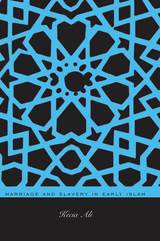
What did it mean to be a wife, woman, or slave in a society in which a land-owning woman was forbidden to lay with her male slave but the same slave might be allowed to take concubines? Jurists of the nascent Maliki, Hanafi, and Shafi‘i legal schools frequently compared marriage to purchase and divorce to manumission. Juggling scripture, precedent, and custom on one hand, and the requirements of logical consistency on the other, legal scholars engaged in vigorous debate. The emerging consensus demonstrated a self-perpetuating analogy between a husband’s status as master and a wife’s as slave, even as jurists insisted on the dignity of free women and, increasingly, the masculine rights of enslaved husbands.
Marriage and Slavery in Early Islam presents the first systematic analysis of how these jurists conceptualized marriage—its rights and obligations—using the same rhetoric of ownership used to describe slavery. Kecia Ali explores parallels between marriage and concubinage that legitimized sex and legitimated offspring using eighth- through tenth-century legal texts. As the jurists discussed claims spouses could make on each other—including dower, sex, obedience, and companionship–they returned repeatedly to issues of legal status: wife and concubine, slave and free, male and female.
Complementing the growing body of scholarship on Islamic marital and family law, Ali boldly contributes to the ongoing debates over feminism, sexuality, and reform in Islam.

In The Music of Stones, Sohail Hashmi delves into the intricate history and misconceptions surrounding Islamic architecture and culture. Challenging colonial and orientalist narratives, Hashmi reveals that iconic elements like domes and minarets were not originally part of early Islamic structures but later additions influenced by various cultures, primarily Persian and Turkish. Through engaging anecdotes and thought-provoking theories, Hashmi deconstructs the monolithic view of Islamic culture, emphasizing its rich and diverse heritage shaped by Sufi, Central Asian, and other regional influences. He highlights the importance of historical context and the dangers of oversimplifying complex cultural identities.
The Music of Stones invites readers to reconsider the architectural and cultural legacy of Islam, advocating for a more inclusive and evidence-based understanding that transcends reductive labels and celebrates the richness of its diverse traditions.
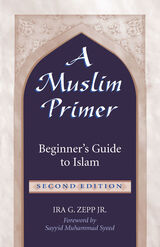
A Muslim Primer covers the basic beliefs of Islam and provides an informative source for both lay and professional readers. First published in 1992, it has proven to be a valuable handbook for all attempting to better understand the tenets of the religion of a major portion of the world’s population. The reader is introduced to the authority of the Quran, the prophethood of Muhammad, the Wisdom of the Law, the Five Pillars of Islam, and to other fundamental principles of the religion. Distinctions are made between Sunni and Shiite traditions and the Sufi mystical dimension of Islam.
Well organized, visually appealing, and accurate, A Muslim Primer is useful to pre-collegiate and collegiate students of Islam, church and community study groups, and travelers, both tourists and business people.
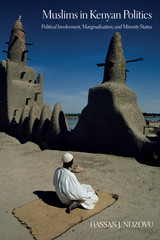
Kenya’s Muslim population comprises ethnic Arabs, Indians, and black Africans, and its status has varied historically. Under British rule, an imposed racial hierarchy affected Muslims particularly, thwarting the development of a united political voice. Drawing on a broad range of interviews and historical research, Ndzovu presents a nuanced picture of political associations during the postcolonial period and explores the role of Kenyan Muslims as political actors.
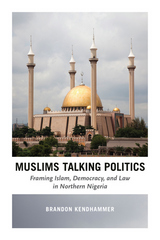
Kendhammer argues that despite Nigeria’s struggles with jihadist insurgency, its recent history is really one of tenuous and fragile reconciliation between mass democratic aspirations and concerted popular efforts to preserve Islamic values in government and law. Combining an innovative analysis of Nigeria’s Islamic and political history with visits to the living rooms of working families, he sketches how this reconciliation has been constructed in the conversations, debates, and everyday experiences of Nigerian Muslims. In doing so, he uncovers valuable new lessons—ones rooted in the real politics of ordinary life—for how democracy might work alongside the legal recognition of Islamic values, a question that extends far beyond Nigeria and into the Muslim world at large.
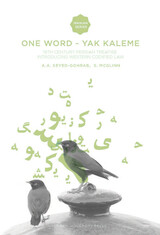
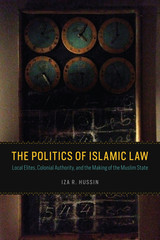
Drawing on extensive archival work in English, Arabic, and Malay—from court records to colonial and local papers to private letters and visual material—Hussin offers a view of politics in the colonial period as an iterative series of negotiations between local and colonial powers in multiple locations. She shows how this resulted in a paradox, centralizing Islamic law at the same time that it limited its reach to family and ritual matters, and produced a transformation in the Muslim state, providing the frame within which Islam is articulated today, setting the agenda for ongoing legislation and policy, and defining the limits of change. Combining a genealogy of law with a political analysis of its institutional dynamics, this book offers an up-close look at the ways in which global transformations are realized at the local level.
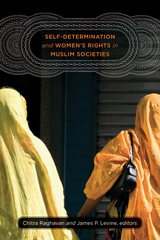
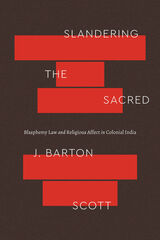
Why is religion today so often associated with giving and taking offense? To answer this question, Slandering the Sacred invites us to consider how colonial infrastructures shaped our globalized world. Through the origin and afterlives of a 1927 British imperial law (Section 295A of the Indian Penal Code), J. Barton Scott weaves a globe-trotting narrative about secularism, empire, insult, and outrage. Decentering white martyrs to free thought, his story calls for new histories of blasphemy that return these thinkers to their imperial context, dismantle the cultural boundaries of the West, and transgress the borders between the secular and the sacred as well as the public and the private.
READERS
Browse our collection.
PUBLISHERS
See BiblioVault's publisher services.
STUDENT SERVICES
Files for college accessibility offices.
UChicago Accessibility Resources
home | accessibility | search | about | contact us
BiblioVault ® 2001 - 2024
The University of Chicago Press


